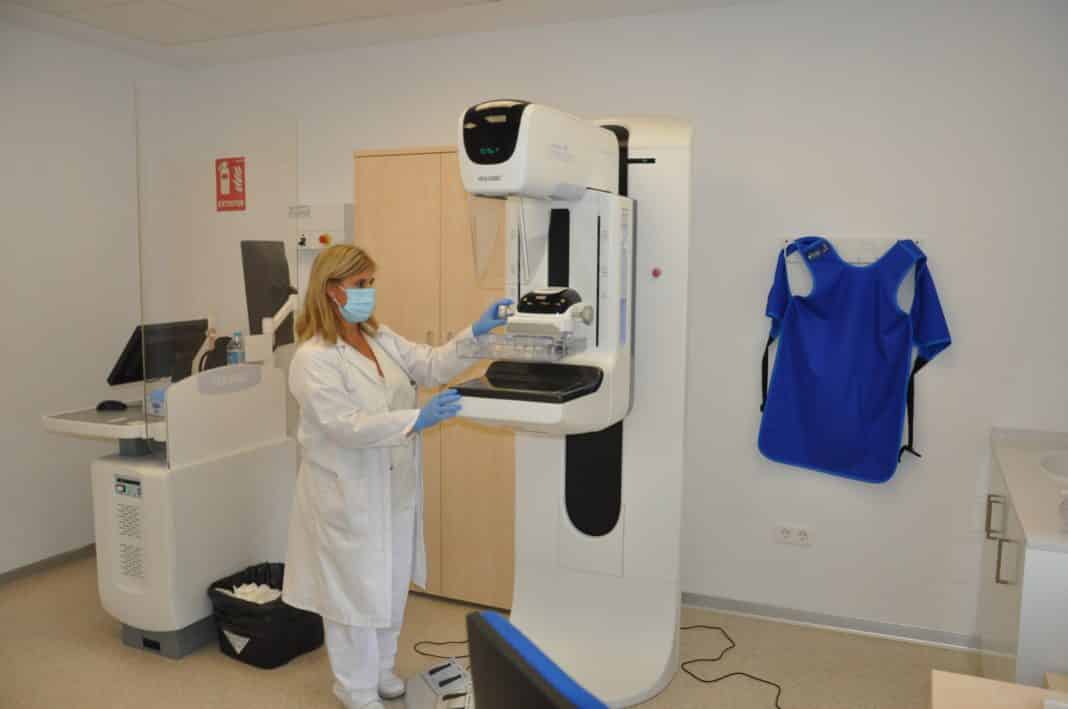The 24 breast cancer prevention units in the Valencian Community made it possible to detect a total of 1,301 cancers early last year.
These data have been made known by the General Directorate of Public Health on the occasion of the celebration of the International Day against Breast Cancer, on October 19.
The Minister of Health, Marciano Gómez, recalled that “the Breast Cancer Prevention Program of the Valencian Community celebrated 30 years of activity last year since it was launched in 1992, and was the second to be implemented throughout Spain”. In these three decades, “24,000 breast cancers have been detected and more than 5 million mammograms have been performed thanks to the program”, highlighted the head of Health.
“After 30 years of operation of the program and the good results in both survival and quality of life, on the International Day against Breast Cancer, I encourage all women to join the screening plans, as part of the promotion and prevention of health care”, emphasised Marciano Gómez.
The main objective of the program is to reduce mortality from this cancer through the early detection of lesions that have not yet manifested symptoms and are therefore susceptible to more conservative treatments, with fewer side effects and accompanied by a most important increase in the survival of women.
Currently, the participation rate is close to 70% and adherence to the program is close to 90%. As for the detection rate, it has been increasing over time, and is approaching 6 per 1,000 women.
Data by province
By province, specifically, Castelló has 3 units that serve three health departments. Last year, 34,881 women were referred to these units, with a participation rate of over 70%, and 123 cancers were detected.
For its part, the province of Alicante has 9 units that serve the respective health departments. The participation rate also exceeded 70% of a total of 120,211 women and 484 cancers were detected.
As for the province of Valencia, it has 12 more prevention units in all health departments. In these units, 173,308 referred women were treated and 694 cancers were detected, with a participation close to 70%.
Through these units, 800,000 women from the Valencian Community aged between 45 and 69 are called every two years for a bilateral mammographic examination.
Extension to women between 70 and 74 years old
In October of last year, the program age was extended to women between 70 and 74 years old, which is being developed progressively, that is, starting in 2023 for women born in 1953, and that they turn 70, and in successive years, with those born in 1954 (who will be cited in 2024); 1955 (which will be cited in 2025); 1956 (which will be cited in 2026), and 1957 (which will be cited in 2027), so that all women between 45 and 74 years old will be included in 2027.
Incidence, mortality and survival
Breast cancer is most common in women. According to the latest data from the Cancer Information System of the Valencian Community, 3,308 cases of breast cancer were registered in 2021, which represents an incidence rate of 116 new cases per 100,000 women, and 28% of ‘11,761 cases of cancer in women.
Regarding mortality, although it is the first cause of death from cancer in women, the Valencian Community is among the regions of Europe with the lowest mortality from this type of cancer. In 2021, 709 women died from breast cancer in the Valencian Community, which means a mortality rate of 23.4 per 100,000 women, similar to the Spanish rate and lower than the European rate (34.8 per 100,000).
It is the tumour with the highest survival in women, 88% of women diagnosed in the period 2004-2020. In this sense, survival by tumour stage reinforces the importance of early detection, with survival rates of 95% in local tumours (more than half of all breast tumours), 86% in regional extension (39% of breast tumours) and 29% in metastasis (6% of breast tumours).





